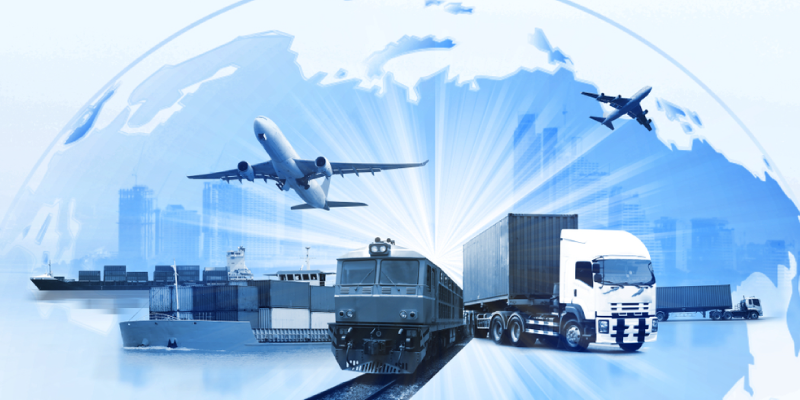
In recent years, the rise of Direct-to-Consumer (D2C) brands has been nothing short of remarkable. As per the latest industry estimates, India is currently home to over 800 D2C brands, and is expected to reach $100 billion by 2025. These brands have disrupted traditional retail models by establishing a direct connection with their customers, offering unique products and personalised experiences with competitive pricing. However, the success of D2C brands lies in a critical factor that plays a pivotal role in their growth: effective logistics management.
In today’s competitive ecommerce era, where thousands of businesses sell online, customer service is the only differentiator by which a brand can attract and retain clients, and it may raise the standard through effective logistics management. In fact, the Indian market is witnessing a rapid proliferation of D2C brands across various sectors, including fashion, beauty, electronics, and food. This surge in D2C brands has been fuelled by factors such as increasing digital penetration, changing consumer preferences, and the growing entrepreneurial ecosystem.
Logistics management
Logistics management has come to light as a battle hero of the ecommerce industry and an essential component of any ecommerce organisation, assisting in the transportation of goods from point A to point B (and everywhere in between). It includes everything from sourcing and procurement to transportation, warehousing, and inventory management. Simply put, it is the process that comprises planning, operations, and quality control in moving and storing goods, services, and information from their point of origin to their intended destination while keeping the customer demand in mind. Thus, in today’s fast-paced and competitive business environment, logistics management emerges as a significant aspect for D2C brands to succeed.
How effective logistics management empowers D2C brands
Business Profitability: It is no surprise that ever since the pandemic wreaked havoc worldwide, effective logistics management has come forth as a vital component to do wonders for D2C brands. With the help of sound logistics operations, brands can reduce costs and increase profitability by streamlining the supply chain and eliminating waste. Furthermore, it results in repeat business and great word-of-mouth marketing. All of these characteristics, when combined, can contribute to an ecommerce business’s profitability and brand value.
Enhance efficiency and effectiveness: Whether a brand chooses to outsource or keep its logistics strategy in-house, creating a proper logistics plan can increase the company’s efficiency. With on-site logistics planning, an organisation can appropriately store supplies while also promptly locating them. As a result, efficient logistics management doesn’t just stop at delivery; it extends to the entire supply chain. D2C brands can accelerate transactions and boost business activity while maintaining complete control.
According to a Deloitte India analysis, supply chain inefficiencies cost the Indian economy billions of dollars each year. However, if brands are overburdened by their logistics worries, it is advisable to delegate the work to professionals. Outsourcing their logistics to a third-party logistics (3PL) business can help save time and money while expanding efficiency and effectiveness.
Improve customer experience: There is no denying the fact that ever since technological advancement took centre stage, customer preference has witnessed a paradigm shift. This is where logistics management emerged as a game changer in improving the customer experience by ensuring on-time delivery of orders. A study conducted by McKinsey revealed that 50% of Indian online shoppers consider delivery speed to be a crucial factor influencing their purchase decisions. Thus, D2C brands need to accomplish these expectations through careful planning and coordination of all supply chain activities such as transportation, warehousing, and distribution.
Boost last-mile delivery: Getting an order from point A to point B might involve more things than just following the shortest path on a map. That’s where one of the most critical aspects of logistics for D2C brands is last-mile delivery. It’s the final leg of the journey, from the distribution centre to the customer’s doorstep. India’s unique challenges, such as diverse geographies, traffic congestion, and infrastructure limitations, make last-mile delivery particularly complex. Thus, effective logistics management is crucial for the growth of D2C brands.
Improve supply chain visibility: In recent years, India’s ecommerce market has been experiencing significant growth, and this trend is expected to continue. According to IBEF, Indian ecommerce is expected to reach $350 billion by 2030. This is where effective logistics management can assist brands to improve their supply chain visibility. The ability to track and monitor the movement of goods and materials along the supply chain is referred to as supply chain visibility. Businesses may gain better visibility into their supply chains and find areas where they can enhance their processes and decrease costs with smart logistics management.
Logistics management: A boon for D2C brands
In today’s fast-paced era, effective logistics management has become an indispensable component of the growth journey for D2C brands in India. Brands can achieve high profitability and long-term success by following the right logistics strategies. Therefore, as the D2C market evolves, logistics will continue to be a significant differentiator, impacting consumer experiences and determining the success of these firms.
Furthermore, D2C firms that prioritise good logistics management will not just survive but thrive, creating long-term relationships with their consumers and driving continuous growth in the booming Indian economy.
(Yash Jain is the Founder and CEO of NimbusPost, a tech-enabled logistics platform)
(Disclaimer: The views and opinions expressed in this article are those of the author and do not necessarily reflect the views of YourStory.)










